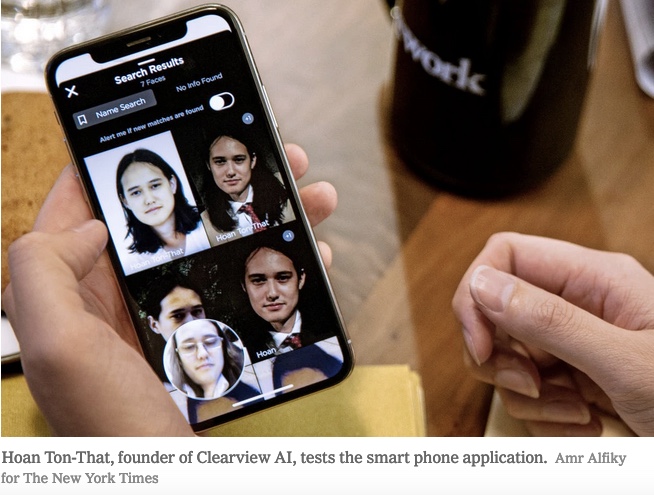The American Civil Liberties Union on Thursday sued the facial recognition start-up Clearview AI, which claims to have helped hundreds of law enforcement agencies use online photos to solve crimes, accusing the company of “unlawful, privacy-destroying surveillance activities.”
In a suit filed in Illinois, the A.C.L.U. said that Clearview violated a state law that forbids companies from using a resident’s fingerprints or face scans without consent. Under the law, residents have the right to sue companies for up to $5,000 per privacy violation.
“The bottom line is that, if left unchecked, Clearview’s product is going to end privacy as we know it,” said Nathan Freed Wessler, a lawyer at the A.C.L.U., “and we’re taking the company to court to prevent that from happening.”
The suit, filed in the Circuit Court of Cook County, adds to the growing backlash against Clearview since January, when The New York Times reported that the company had amassed a database of more than three billion photos across the internet, including from Facebook, YouTube, Twitter and Venmo. This trove of photos enables anyone with the Clearview app to match a person to their online photos and find links back to the sites where the images originated.
People in New York and Vermont have also filed suits in against the company in recent months, and the state attorneys general of Vermont and New Jersey have ordered Clearview to stop collecting residents’ photos.
According to the A.C.L.U. suit, “Clearview has set out to do what many companies have intentionally avoided out of ethical concerns: create a mass database of billions of face prints of people, including millions of Illinoisans, entirely unbeknownst to those people, and offer paid access to that database to private and governmental actors worldwide.”
The company’s business model, the complaint said, “appears to embody the nightmare scenario” of a “private company capturing untold quantities of biometric data for purposes of surveillance and tracking without notice to the individuals affected, much less their consent.”
“Clearview AI is a search engine that uses only publicly available images accessible on the internet,” Tor Ekeland, a lawyer for Clearview, said in a statement. “It is absurd that the A.C.L.U. wants to censor which search engines people can use to access public information on the internet. The First Amendment forbids this.”
Mr. Wessler of the A.C.L.U. said the First Amendment “does not shield Clearview’s unlawful conducts.”




